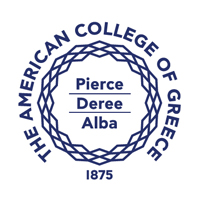The members of the AI Research Team perform and pursue research in machine learning; big data mining; machine learning on sequential data; explainable and trustworthy AI; recommender systems; rule-based systems; natural language processing (NLP) and large language models (LLMs); deep learning in vision; optimization; complex graph analysis; computer game AI, etc. Particular focus application areas include: quality management in Industry 4.0; diagnosis, prognosis and management of hematological diseases; drug-drug interaction prediction; drug re-purposing; social media analytics; pattern mining in biomedical text; machine vision for medical informatics; fault detection and selection in power transmission lines; security incident detection and response in smart grids and others.
Team General Interests
- Machine Learning and Data Mining Algorithms
- Language Models (Small and Large)
- Computer Vision & NLP
- Recommender Systems
- Parallel/Distributed Optimization and Computing
- Optimization for Deep Learning Networks
- Algorithmic interplay of AI and O/R
- Games/Game Design
- Explainable/Interpretable AI
- Neuro-symbolic AI
- Applications of AI in Real-World Problems
- Outlier detection, fraud detection, cyber-security
AI Research Team Members
The AI Research Team is actively pursuing various research grants from programs such as the European Commission’s Horizon program, the European Space Agency, and others, in collaboration with several external partners.
Currently, the AI lab has 5 members: Dr. Ioannis Christou, Dr. Ioannis Vetsikas, Dr. Elena Chatzimichali, Dr. Dimitrios Vogiatzis and Dr. Nikolaos Bakas.
Mission
To conduct high-caliber and high-impact research in select AI areas; to attract funding through proposal writing; to attract and retain students to do research in AI; to collaborate with other research teams on inter-disciplinary topics and applications related to AI; to foster collaborations with academia and industry.
Vision
To perform world-class research in AI and its applications.
